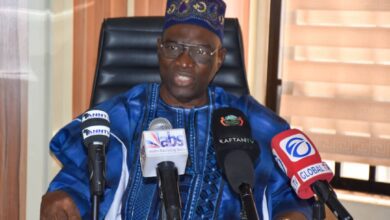
The Federal Government of Nigeria, through the Federal Ministry of Water Resources and Sanitation, in collaboration with the United Nations Educational, Scientific and Cultural Organization (UNESCO), has inaugurated the Chair in Integrated Flood Management and Water Resources to enhance water resource management, food security, and sustainable livelihoods across the country.
Director, Information and Public Relations of the Ministry of Water Resources and Sanitation, Mrs. Funmi Imuetinyan, in a statement on Wednesday, said the UNESCO Chair in Integrated Flood Management and Water Resources domiciled at the Federal University of Technology, Minna, Nigeria, aims to advance knowledge and institutional capacities in flood management and water resource development.
“Its objectives include improving understanding of the Niger Basin’s hydrological system, developing innovative flood management tools such as early warning systems and multi-hazard response strategies, and raising awareness through web-based platforms. It also focuses on equipping policymakers with knowledge for informed decisions and building capacity,” she added.
The Director said while speaking during the inauguration workshop in Abuja, the Minister of Water Resources and Sanitation, Prof. Joseph Utsev, emphasized the critical role of the UNESCO Committee in advancing research and knowledge for effective flood risk management.
He noted that the committee is led by prominent higher education and research institutions dedicated to improving the understanding and control of flood risks.
Prof. Utsev stressed that climate change and global warming were major drivers of the increasing frequency and intensity of floods worldwide. He highlighted the urgent need for knowledge-based solutions and evidence-driven strategies to guide government actions and implement best practices to mitigate flooding challenges in Nigeria.
The Minister explained that the UNESCO Committee serves as a collaborative platform to promote research, training, and the dissemination of critical knowledge in water and environmental sectors.
He noted that the committee’s objectives include improving understanding of Nigeria’s river basins, developing a multi-hazard flood response strategy, and showcasing the impact of UNESCO’s initiatives in the country.
Prof. Utsev expressed appreciation to UNESCO for its consistent support in advancing water science knowledge and encouraged participants to use the workshop as a forum for meaningful dialogue, urging them to contribute innovative solutions to water resource management, focusing on food security and sustainable livelihoods for Nigerians.
Mr. Abdourahamane Diallo, Head of the UNESCO Abuja Office, represented by Dr. Albert Mendy, emphasized the vital role of water in sustainable development, justice, and food security.
He underscored the impact of climate change and the importance of sustainable water resource management.
On his part,Chairman of the National IHP Committee, Prof. Onemayin David Jimoh, stressed the importance of collaboration and innovation in addressing Nigeria’s water management challenges in his welcome address.
He highlighted the urgent need for effective management of catchment areas and groundwater resources to ensure sustainable water use and resilience.
Goodwill messages were delivered by key stakeholders, including the Director General of the National Water Resources Institute (NWRI), the Director General of the Nigeria Hydrological Services Agency (NIHSA), Acting Executive Director of the Nigerian Integrated Water Resources Management Commission (NIWRMC), and the Secretary-General of the National Commission for UNESCO.
Other speakers at the event were the representative of Vice Chancellor, Federal University of Technology, Minna, the UNESCO IHP Secretariat, and Ms. Enang Moma from the UNESCO Abuja Office, who provided an insightful overview of the workshop’s objectives and focus.






